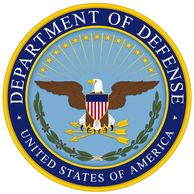The Gift of Flight: Qatar's Boeing 747 and the Politics of Air Force One
May 14, 2025, 4:34 am

Location: United States, Illinois, Chicago
Employees: 10001+
Founded date: 1916
Total raised: $25.01B
In a world where politics often resembles a high-stakes game of chess, the recent offer from Qatar to provide a Boeing 747 as a temporary Air Force One has stirred the pot. President Donald Trump hailed this gesture as a “very nice” act, attributing the need for such a donation to delays from Boeing. This situation raises questions about transparency, ethics, and the delicate balance of international relations.
The backdrop is a familiar one. Trump, ever the showman, is preparing for a Middle East tour that includes stops in Qatar, Saudi Arabia, and the United Arab Emirates. The offer of a new presidential jet comes at a time when the current Air Force One, a modified Boeing 747, is pushing 40 years old. The delays in delivering new aircraft from Boeing have left the administration scrambling.
Trump’s remarks paint a picture of frustration. He expressed disappointment over Boeing’s inability to deliver on time. In his eyes, Qatar’s offer is not just generous; it’s a lifeline. “I could be a stupid person and say no, we don’t want a free plane,” he quipped, highlighting the astronomical costs of maintaining aging aircraft.
But the political landscape is murky. Critics are quick to point out the potential implications of accepting such a gift. The U.S. Constitution has a clear stance on foreign gifts, particularly from “any King, Prince or foreign State.” This is known as the emoluments clause, designed to prevent foreign influence over American officials.
The White House, however, is adamant about transparency. Press Secretary Karoline Leavitt assured the public that any donation would comply with the law. Yet, the very nature of the gift raises eyebrows. Is it truly altruistic, or does Qatar expect something in return? Leavitt dismissed these concerns, stating that the Qatari leadership understands Trump’s commitment to American interests.
The proposed Boeing 747-8, often described as a “flying palace,” symbolizes luxury and power. It’s a stark contrast to the aging Air Force One currently in service. The optics of a foreign-built plane serving as the presidential jet could be unprecedented. Critics argue it could expose the White House to foreign interference or even spying.
Trump’s defense of the offer is both bold and defiant. He framed the situation as a transparent transaction, a gift to the Defense Department. Yet, the implications of such a gift are complex. If accepted, it could set a precedent for future foreign donations, blurring the lines of ethical governance.
As the discussions unfold, the legal teams from both nations are scrutinizing the details. The potential loopholes are numerous. If the jet is given to the Pentagon, it may sidestep some constitutional hurdles. Alternatively, Trump could later donate it to his presidential library, further complicating the narrative.
The political ramifications are significant. Opposition lawmakers are already voicing concerns. They argue that accepting a foreign gift could undermine national security and set a dangerous precedent. The notion of a foreign government influencing U.S. policy is a bitter pill for many to swallow.
Meanwhile, Trump’s supporters view the offer as a pragmatic solution to a pressing problem. They see it as a testament to the strong ties between the U.S. and Qatar. The Gulf state has invested heavily in American defense contracts, making this gesture appear more like a partnership than a potential conflict of interest.
The situation is a delicate dance. On one hand, there’s the allure of a shiny new aircraft, a symbol of prestige. On the other, there’s the weight of constitutional law and ethical governance. The stakes are high, and the outcome remains uncertain.
As Trump prepares for his Middle East tour, the offer from Qatar looms large. It’s a reminder of the complexities of international relations. The line between diplomacy and influence is thin. The decision to accept or reject the Boeing 747 will reverberate far beyond the tarmac.
In the end, this isn’t just about a plane. It’s about trust, transparency, and the future of American governance. The world will be watching closely as this story unfolds. Will the U.S. accept Qatar’s generous offer, or will the weight of constitutional law ground this potential gift? Only time will tell.
In a game where every move counts, the implications of this decision could reshape the landscape of U.S. foreign relations. The skies may be clear, but the political clouds are gathering. The gift of flight could either elevate the presidency or entangle it in controversy. The choice is in the hands of those at the helm.
The backdrop is a familiar one. Trump, ever the showman, is preparing for a Middle East tour that includes stops in Qatar, Saudi Arabia, and the United Arab Emirates. The offer of a new presidential jet comes at a time when the current Air Force One, a modified Boeing 747, is pushing 40 years old. The delays in delivering new aircraft from Boeing have left the administration scrambling.
Trump’s remarks paint a picture of frustration. He expressed disappointment over Boeing’s inability to deliver on time. In his eyes, Qatar’s offer is not just generous; it’s a lifeline. “I could be a stupid person and say no, we don’t want a free plane,” he quipped, highlighting the astronomical costs of maintaining aging aircraft.
But the political landscape is murky. Critics are quick to point out the potential implications of accepting such a gift. The U.S. Constitution has a clear stance on foreign gifts, particularly from “any King, Prince or foreign State.” This is known as the emoluments clause, designed to prevent foreign influence over American officials.
The White House, however, is adamant about transparency. Press Secretary Karoline Leavitt assured the public that any donation would comply with the law. Yet, the very nature of the gift raises eyebrows. Is it truly altruistic, or does Qatar expect something in return? Leavitt dismissed these concerns, stating that the Qatari leadership understands Trump’s commitment to American interests.
The proposed Boeing 747-8, often described as a “flying palace,” symbolizes luxury and power. It’s a stark contrast to the aging Air Force One currently in service. The optics of a foreign-built plane serving as the presidential jet could be unprecedented. Critics argue it could expose the White House to foreign interference or even spying.
Trump’s defense of the offer is both bold and defiant. He framed the situation as a transparent transaction, a gift to the Defense Department. Yet, the implications of such a gift are complex. If accepted, it could set a precedent for future foreign donations, blurring the lines of ethical governance.
As the discussions unfold, the legal teams from both nations are scrutinizing the details. The potential loopholes are numerous. If the jet is given to the Pentagon, it may sidestep some constitutional hurdles. Alternatively, Trump could later donate it to his presidential library, further complicating the narrative.
The political ramifications are significant. Opposition lawmakers are already voicing concerns. They argue that accepting a foreign gift could undermine national security and set a dangerous precedent. The notion of a foreign government influencing U.S. policy is a bitter pill for many to swallow.
Meanwhile, Trump’s supporters view the offer as a pragmatic solution to a pressing problem. They see it as a testament to the strong ties between the U.S. and Qatar. The Gulf state has invested heavily in American defense contracts, making this gesture appear more like a partnership than a potential conflict of interest.
The situation is a delicate dance. On one hand, there’s the allure of a shiny new aircraft, a symbol of prestige. On the other, there’s the weight of constitutional law and ethical governance. The stakes are high, and the outcome remains uncertain.
As Trump prepares for his Middle East tour, the offer from Qatar looms large. It’s a reminder of the complexities of international relations. The line between diplomacy and influence is thin. The decision to accept or reject the Boeing 747 will reverberate far beyond the tarmac.
In the end, this isn’t just about a plane. It’s about trust, transparency, and the future of American governance. The world will be watching closely as this story unfolds. Will the U.S. accept Qatar’s generous offer, or will the weight of constitutional law ground this potential gift? Only time will tell.
In a game where every move counts, the implications of this decision could reshape the landscape of U.S. foreign relations. The skies may be clear, but the political clouds are gathering. The gift of flight could either elevate the presidency or entangle it in controversy. The choice is in the hands of those at the helm.
